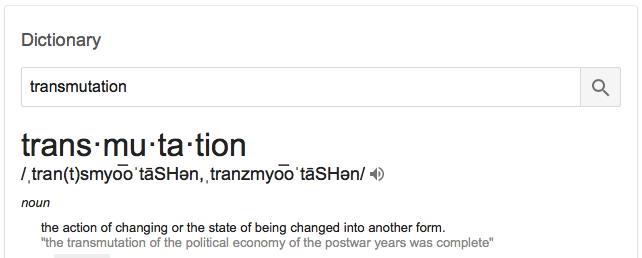
You’ve heard the famous phrase before, right?
“Good artists borrow, great artists steal.”
Widely attributed to having been said by Pablo Picasso (although this is debated) many of us have heard this phrase in one form or another. The question, though, is why? Isn’t plagiarism usually something generally frowned upon by creators?
And also, you know, the law?

I heard they throw the book at people. Sound Painful
So how come a quote telling us to do exactly that has been so heavily popularized and painted in such a positive light?
Well, because it’s true.
Great artists do steal. In fact, great creators and innovators of any kind all steal.
They just don’t stop there. After they steal, great artists transmute.
And that’s what makes them great.
The Cycle of Transmutation
First, lets define transmutation.

Go watch Fullmetal Alchemist Brotherhood to Learn More. You’re welcome.
This is what lies at the core of all creativity and innovation. All great artists and thinkers are inspired by other great artists and thinkers. They use the works that came before them as a basis for their own work, and then change and redefine it through their own style, taste, and technique.
All knowledge is learned, then transmuted, then applied, and then learned again for another to continue the cycle.
This is key, and what that famous saying really meant. It isn’t advocating plagiarism, it’s advocating transmutation. To take the essence of a pre-existing idea, re-examine it, expand on it, fundamentally change it, and, eventually, evolve it.
Combinative Creativity as an Art Form
Before the computer, there was the calculator, and before the calculator, there was the abacus. Each iteration is a more advanced, more capable version of its predacsecor, but they all essentially do the same thing.

Computers: Counting better than the abacus since the 1940's
Does this make the man who invented the computer a thief to the man who invented the calculator, and he a thief to whoever invented the abacus? No, of course not. They all borrowed from pre-existing ideas, but what made them paragons of inginuity rather than thieves was their transmutation of those ideas into new, more refined, and more effecient versions.
This is called Combinative Creativity.
Combinative Creativity is exactly what it sounds like. It’s taking two (or more) ideas that are relative to one another and combining them to create new ones.
Sounds easy, right?
Maybe, but to do it well is a whole other story. To not only combine relative ideas, but to make a leap of innovation within the field you’re creating within by doing so, almost always takes hours of deliberate practice and resilience to stay dedicated in the face of inevitable failure.
But that’s why those who fundamentally change or improve on pre-existing ideas are remembered by history not as thieves, but as geniuses. It’s because they earned it. They took the time to understand their craft and the ideas surrounding it so thoroughly, so intimately, that they were able to “see” how they could make the proverbial puzzle pieces fit together more concisely and then applied their knowledge and understanding to do so.
Don’t go and try to take the credit for someone else's work, it’s lame and also super douchey. Instead, study, learn, and expand, especially if you’re feeling blocked creatively. Take the work that inspires you and use it, because if your intention isn’t to pass that work off as your own but to create something new using it’s influence, you inevitably will.
So go out and “steal”. Just do so tastefully.
That's what open source take advantage.
Thanks for your response!
I love this! I think I will resteem it and also share it on Facebook. There is a guy who wrote a book called Steal Like An Artist and I heard an interview with him. I don't remember his name though. Following
Thank you so much, glad you enjoyed and I appreciate the share : )
click here!This post received a 3.5% upvote from @randowhale thanks to @iamjustincscott! For more information,
@iamjustincscott got you a $1.7 @minnowbooster upgoat, nice! (Image: pixabay.com)
Want a boost? Click here to read more!
This post has received a 0.78 % upvote from @drotto thanks to: @banjo.
Join us in Discord.This post received a 5% vote by @minnowsupport courtesy of @creativesoul from the Minnow Support Project ( @minnowsupport ).
Upvoting this comment will help support @minnowsupport.
This gem of a post was discovered by the OCD Team!
Reply to this comment if you accept, and are willing to let us share your gem of a post! By accepting this, you have a chance to receive extra rewards and one of your photos in this article may be used in our compilation post!
Gems! We strive for transparency.You can follow @ocd – learn more about the project and see other
I am of course willing!
I wanted to write about a certain topic but saw that someone already wrote about it so it felt to me like I was going to just copy and steal from what he posted but after reading this post I'll try my hand at "transmutation" and approach the topic from a different, elevated view. Thanks for sharing your thoughts , oh and at first I thought your title read COMBATIVE Creativity. Now that would be interesting. ;)